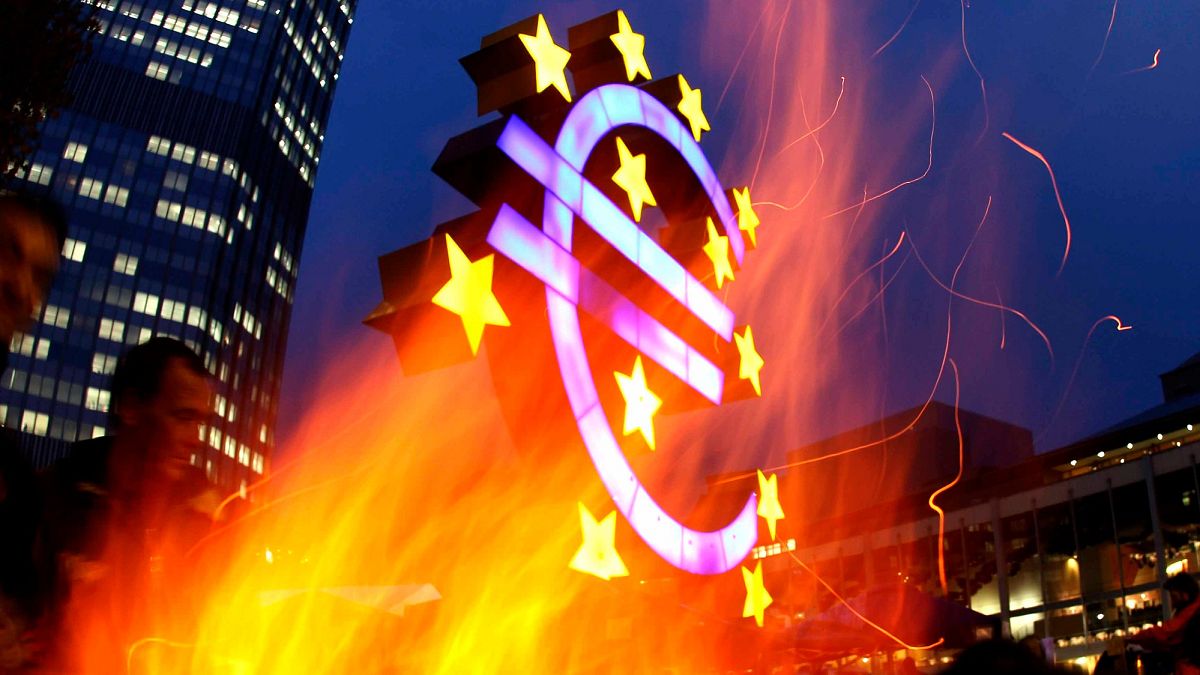The Global Divide on De‑Banking: How the US, UK and EU Approach Risk

Banking Policy Tensions: From Technical Risk Management to a Political Battlefield
What began as a technical risk management concern has now become a political battlefield, with governments deliberating how far banks may choose to accept or refuse their customers.
- Technical Risk Management – the original focus of banking practices.
- Political Battlefield – the evolving stage of policy discussions.
- Government Oversight – debates over the limits of banks’ customer selection.
The Rising Phenomenon of De‑Banking
A Sudden Bank Closure
On a seemingly ordinary morning, you log into your banking portal only to discover that every transaction is halted. Your debit and credit cards refuse to work, scheduled payments stop, and even your savings cannot be accessed. No warning of fraud or a missing cheque – just a terse notification: “Your account is being closed. Please arrange alternative banking services.”
What Is De‑Risking?
Within the financial sector, this practice is known as de‑risking. Banks terminate relationships with clients or entire sectors to protect themselves from regulatory scrutiny or reputational harm.
The Ripple Effects of De‑Banking
- Financial crime prevention strategies are tightening.
- Basic economic rights for individuals and businesses are jeopardized.
- Cross‑border trade flows may be disrupted.
- Public trust in banking institutions can erode.
Regulatory Approaches Across Regions
The United Kingdom, the United States, and the European Union are adopting markedly different frameworks to address the challenges posed by de‑risking and to safeguard economic access.
The US: Concerns over ‘woke capitalism’?
Trump’s Executive Order Aims to Stop Politically Motivated De‑Banking
What the Order Specifically Prohibits
- Ban on using “reputational risk” as a reason to close customer accounts.
- Mandate for banking regulators to examine and document existing practices within 180 days.
Why Supporters Back the Measure
- Argues it safeguards the freedom of political expression.
- Claims it prevents discrimination against individuals with conservative viewpoints, who say they face disproportionate targeting.
Concerns Raised by Critics
- Warns that banks might be forced to continue servicing clients involved in activities that pose financial crime or security risks.
Trump’s Alleged Personal Experiences
Trump repeatedly accused major institutions—JPMorgan Chase and Bank of America—of refusing his services after his first term due to his conservative stance. He claims:
- JPMorgan offered a 20‑day deadline to close his account.
- Bank of America declined a significant deposit even though both banks have denied any politically motivated action.
Related Developments
- EU urges China to lift sanctions on Lithuanian banks amid tensions over Russia and Taiwan.
National Council for Religious Freedom (NCRF)
Founded in 2022, the NCRF openly supports politicians who merge politics with religion and oppose bills such as the Equality Act—arguing that it infringes on “religious freedoms.”

Former Kansas Governor Accuses Banker of Unfair “De‑Banking”
Former Kansas Governor Sam Brownback, who founded the NCRF, claims that the nation’s largest banks have treated his organization unjustly by halting its banking services.
Why Banks Are So Vigilant
- Rapid growth that attracts large deposits without full background disclosure can raise instant red flags.
- Financial institutions, especially giants like JPMorgan Chase, are bound by anti‑money‑laundering rules and undergo continuous oversight.
Suspension of NCRF’s Accounts
JPMorgan Chase’s decision was stated to stem from incomplete compliance paperwork, not from any political or ideological preference.
NCRF’s Response & New Campaign
- They branded the move as “woke capitalism”.
- Initiated a nationwide effort urging U.S. banks to focus solely on measurable, quantifiable risks—creditworthiness, operational stability, and regulatory compliance—rather than reputational concerns.
Implications for the Banking Sector
The recently signed executive order introduces significant administrative burdens: banks might need to
1. Re‑examine thousands of previous account closures,
2. Augment documentation surrounding each decision,
3. Consider restoring clients previously sidelined.
Related Analysis
- Conservative‑leaning AI platform Perplexity makes a surprising bid to acquire a competitor of Google Chrome.
- Elon Musk’s influence over hard‑right European political figures continues to spark debate.
The UK: Farage, Coutts and public outrage
Boosted Debate Over State‑Linked Banking Actions
In 2023, the UK’s public discourse intensified when a major London private bank, famed for its elite clientele, closed a prominent electoral activist’s account. Subsequent disclosure of internal papers revealed that the decision incorporated the individual’s political stance. The incident captured front‑page coverage and spurred the government to pledge clearer regulatory procedures.
Risk Management & Compliance Lens
- PEP Status: The activist, a well‑known political figure, falls under the definition of a Politically Exposed Person (PEP) governed by anti‑money‑laundering directives.
- Enhanced Due Diligence: Banks are obligated to conduct rigorous examinations on PEPs—scrutinising funding origins, intensifying transaction surveillance and continuously evaluating any ties to illicit activity or corruption.
- Operational Impact: Treating a PEP account requires higher resource allocation and a greater regulatory footprint.
Commercial Incentives Behind the Decision
The private bank operates with a model that prioritises low‑risk, discreet relationships. When a client no longer meets the minimal financial thresholds for the bank’s premium services, yet remains demanding of stringent compliance oversight, the cost‑benefit calculus can tilt towards disengagement. Consequently, the closure appeared less as a political censure and more as a strategic realignment with the bank’s risk appetite and business objectives.
Headline Narrative Versus Internal Motive
Regardless of the bank’s internal rationale, the story dominated headlines, influencing national policy on de‑risking and de‑banking practices.
2024 Trends in Account Terminations
- Complaints to the Financial Ombudsman Service regarding closures surged by 44%, reaching close to 3,900 instances, with a higher share subsequently upheld in favor of consumers.
- Business account terminations in 2023 totaled over 140,000, raising alarms for small enterprises and charitable organisations.
Updated Regulatory Requirements
New rules now require banks to provide customers with at least 90 days’ notice before terminating any account and to furnish a detailed explanation for the decision. The public conversation, however, still leans heavily on high‑profile, politically fraught cases rather than the broader economic ramifications of de‑risking.

European Central Bank in Frankfurt’s Banking District
In the heart of Frankfurt’s financial hub, the European Central Bank prominently stands beside the cluster of high-rise banking buildings.
Photo Details
- Location: Frankfurt, Germany
- Date: September 2019
- Photographer: AP Photo
The EU: Quiet, technical and high stakes
Brussels Approaches Bank De‑Risking as a Persistent Technical Issue
Unlike the swift actions seen elsewhere, Brussels has long treated de‑risking as an enduring technical policy challenge. For years, EU bodies have issued guidance that aims to promote financial inclusion while simultaneously enforcing rigorous anti‑money‑laundering and counter‑terrorism financing (AML/CFT) standards.
Balancing Compliance and Customer Access
Roger Kaiser, Head of Tax & Compliance at the European Banking Federation (EBF), explained to Euronews:
“EBF member banks often find themselves caught between a rock and a hard place. They must adhere to strict AML/CFT obligations, which demand the termination of relationships with their riskiest clients. At the same time, they are urged to ensure that legitimate customers can still access basic banking services.”
“As a result, de‑risking decisions should remain proportionate and risk‑based, avoiding blanket bans on entire nations or customer groups,” Kaiser added.
Case‑by‑Case Approach to De‑Risking
According to the EBF, European banks predominantly follow an individualized, case‑by‑case de‑risking process, with special attention paid to “red flags.” Typical red‑flag scenarios include:
- Failure of identity verification through secure, government‑approved ID checks.
- Transactions where the true identity of the person or company is unclear.
- Uncertainty about the entity’s “beneficial owner.”
These efforts aim to assess whether the risk can be mitigated to meet regulatory standards and protect the bank’s reputation, while also evaluating whether the resource investment required to manage that risk would outweigh the value of the account.
De‑Risking as a Consumer Issue in the EU
Kaiser remarked: “De‑risking is increasingly recognized in the EU as a significant consumer concern; however, it is not a novel issue and does not fully align with the priorities highlighted by the Trump Administration.”
For years, EU authorities—most notably the European Banking Authority—have issued comprehensive guidance designed to safeguard financial inclusion and ensure that credible customers are not unjustly excluded from the banking system.





